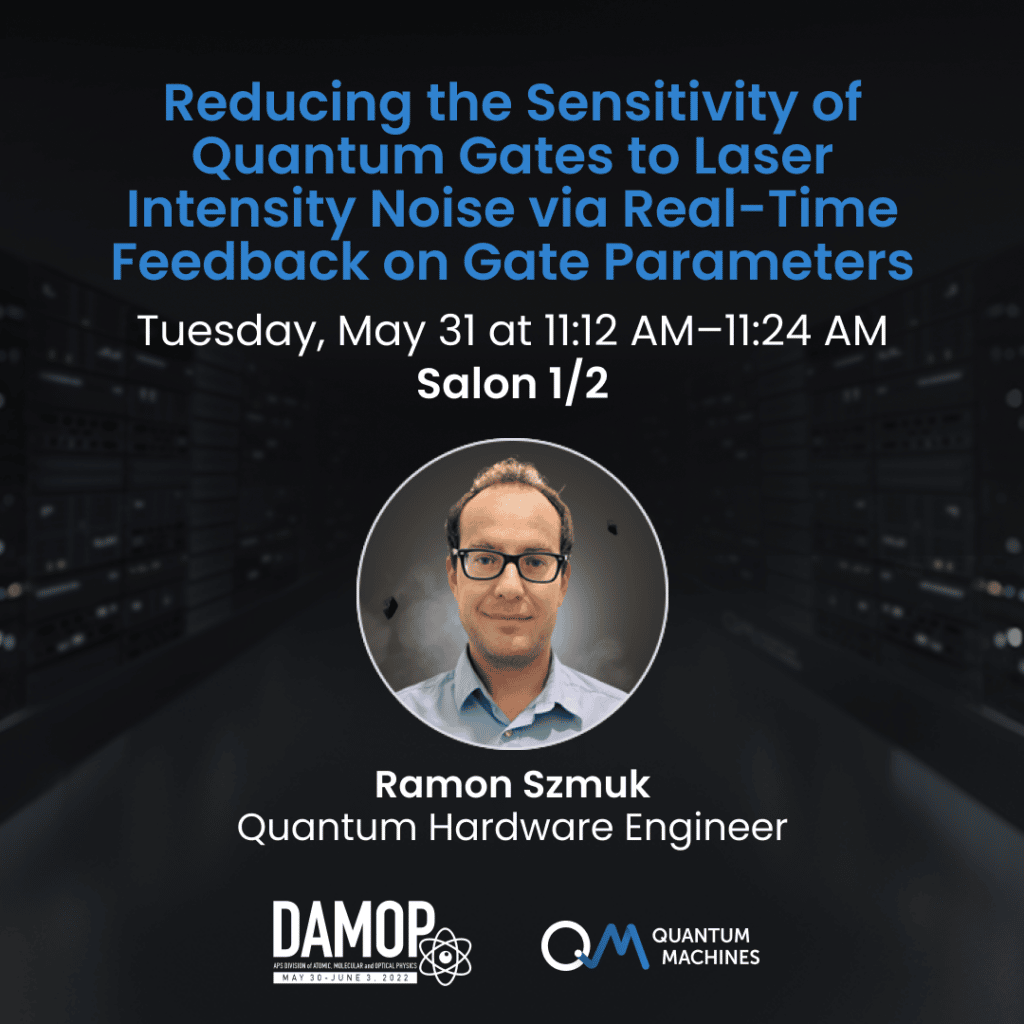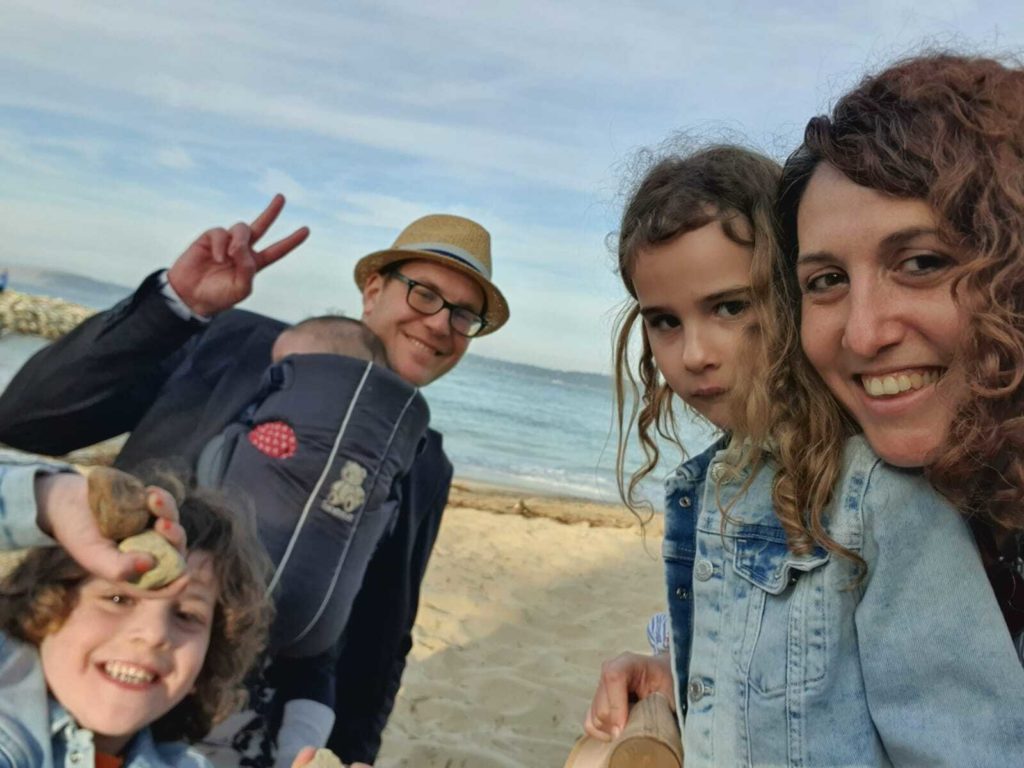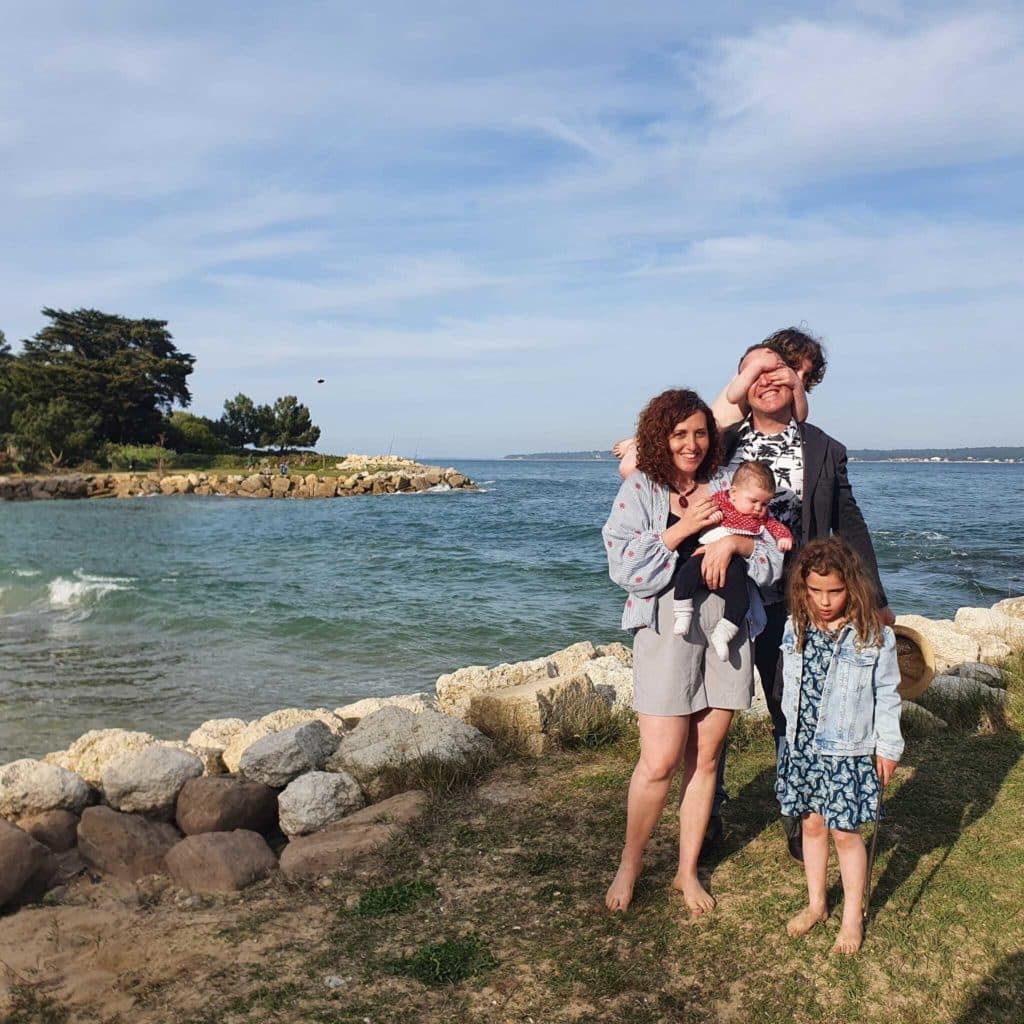Life at QM: Meet Ramon Szmuk, Product Manager
The life of a physicist can be very exciting, and for Ramon, it certainly started out with a bang!
Ramon is Product Manager (and a quantum hardware engineer) here at Quantum Machines. We chatted with him about how he first became interested in physics, why he wanted to work in quantum computing and more.
Later this month, Ramon will be giving a talk on quantum gate sensitivity at the upcoming APS DAMOP in Orlando, Florida. Be sure to check it out!

Why did you choose physics? How did you get started?
Why? Well, why not? When I was 12, I had a home lab where I used to make things like explosives, gunpowder, TNT, rockets, and smoke bombs. My parents were mainly worried that I would mess up the table, so my father built a half-centimeter thick stainless steel plate to cover it so that I wouldn’t damage the table. After that, they were quite okay with my experiments.
Then I started working with electronics because when the bombs got bigger, I didn’t want to be around when they blew up. I was fine with just hearing them from afar. So I started building timers and making things explode on command, which helped me get more into electronics and chemistry. And then, my sister gave me a book on special relativity when I was 16, which deepened my interest in physics.
Did you learn to build all of these explosives and bombs on your own?
I learned it from the Anarchist Cookbook that was online in the 90s. I downloaded it and read it cover to cover.
When I started creating the bombs and devices myself, my father would need to buy the chemicals for me. There was a big chemical shop in Tel Aviv, but they wouldn’t sell to me because I was a kid. I also had friends who would buy me fertilizers, so I actually had my own explosives lab, building rockets and bombs. Computers came in later on, but it all started with explosives.
What interested you about working at a company focused on quantum computing?
My Ph.D. was in atomic clocks, like metrology and precision measurements using quantum mechanics. After that, I worked for five years for a company that made quantum sensors. Then I got sick of quantum sensing and metrology in general because the effort in it grows exponentially. As you create new products, the effects become more esoteric and take longer to measure. After a few years, I wanted to try something new. And Quantum Machines specifically made sense for me because quantum computing and quantum information processing is a new field that doesn’t have a set methodology yet. It’s still in its early days; we’re still at the tail end of that exponential increase in difficulty. Right now, everybody makes prototypes, and it’s a lot of fun.
I felt like I could contribute a lot at QM because I had experience with RF and microwaves from my previous job, so it was a good fit. I was able to take my skill set of physics, quantum physics, metrology, and specifically RF and microwaves and transfer that to quantum information processing instead of quantum sensing.

What does a typical day look like for you?
I spend most of my day interacting with customers and finding out what features they’re looking for. Then I continue by opening tickets for those new features and guiding the R&D team during development. This includes helping R&D prioritize which features to build.
I meet with customers or potential customers and hear their vision for our products and features. These meetings require a lot of travel around Europe and the US. Internally, I work a lot with R&D on brainstorming these features, negotiating which to prioritize, and discussing architecture. I interface between the market and the internal R&D team to create and enhance our products.
What project are you currently focusing on?
So currently, the first Octaves are going out to customers. I make sure that production runs smoothly and help customers get their Octaves up and running. I’ll meet with our customers for installation and run the first experiments together. The goal is to make sure everything is working nicely and to hear the PI’s feedback.
Can you share one of the biggest challenges you’ve had to overcome since starting at QM?
A challenge is that I work remotely, which is challenging for internal matters. Working with the QM team requires more effort because I’m not physically in the office. Externally, it’s an advantage because I’m closer to customers, especially in France, where I live. That’s why my main focus is on the customer side.
There’s a lot of informal communication happening in the office which is very important. For me to communicate with anyone at QM, it has to be purposeful, and through a scheduled meeting. So I miss those ideas and conversations that transpire in the hallways or by the coffee machine.
Is there a project you’re particularly proud of?
I would say Octave. I’m particularly proud of it because it was designed in my bedroom while working remotely. Building hardware is done in the lab, so it was challenging for me not to be there in person when Octave was being developed. But this makes me even prouder of how it turned out.
How did you end up working at QM?
I actually emailed Itamar in 2019 asking to join QM. One of the things that stood out to me then, and still does today, is that QM is in a privileged position as one of the only places where you can benchmark different quantum processes.
When I visit customers, each one is doing their own thing. Startups, academic labs, superconducting ions, atom arrays, and spin qubits, all have their own niche. It’s really cool to see each of these and then to try and wrap your head around everything.
You get an insider look into what everyone is doing, and you learn in detail the pros and cons of spin qubits vs. superconducting ions vs. atom arrays. For an industry in the early phases, getting this information is hugely beneficial for everyone who works at QM.
Typically, a physicist in quantum computing works at a full-stack or software company that only does one thing and isn’t necessarily super aware of what everyone else is doing. In principle, many startups are platform agnostic, but they aren’t building any hardware. So working at QM provides a unique position where you can do deep benchmarking, which I really like.

What were your expectations from a workplace before joining QM?
The nice thing about working at a company founded by physicists is that there’s a positive attitude towards failure. As physicists, we’re used to being wrong after years of education and experiments where we’re basically wrong most of the time. This humbles most physicists, so that makes for a culture where there aren’t any huge egos. We’re open to hearing ideas from anyone and giving them a try.
What is your favorite part of your job?
Coming up with new features that solve customer pain points or provide customers with extra benefits. It’s a balance of finding features that either help the customer do their job or help alleviate pain points that distract or impede them from doing their job. Finding a technical solution to these problems is an aspect I like about my job.
What would you say to someone who’s currently considering joining QM?
Come! It’s fun and dynamic. Things move fast and we’re well funded, so we can do many things. Our current bottleneck is finding more smart and motivated people to come work with us.
So come, there’s a lot of things to do, and you’ll find your spot.